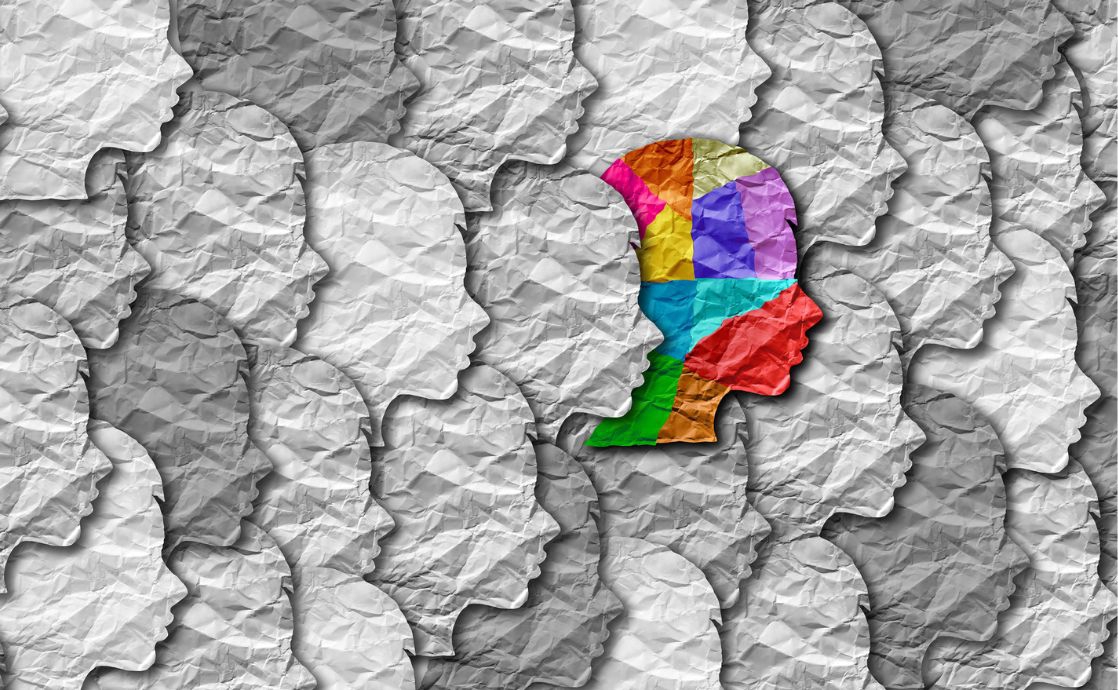The views expressed in our content reflect individual perspectives and do not represent the authoritative views of the Baha'i Faith.
I’m a bit strange, a little different. I’ve spent many hours studying people as if they were another species. I had to do that because, I’ve learned, I have autism.
As an autistic person, I’ve asked myself these questions about others: What are their habits? Why are they so arbitrary and cruel? How do they decide who’s ‘in’ and who’s ‘out’? When do I enter a conversation? Will they laugh with me or at me?
People without autism — those now known as neurotypical — probably don’t have to ask these kinds of questions, I suspect. Somehow, their instincts tell them the answers. Mine don’t.
RELATED: Neuro-Divergence: When You Just Can’t Pray
Autism in Brief
This is not the place to address the complex and contentious discourses around autism raging (not too strong a term) around the world today. Instead, I’ll attempt to summarize a few of the features of autism, with the caveat that each autistic person is different and the degree to which a person exhibits and handles each trait and how they interact varies widely.
We autistic people often face challenges in social interactions with neurotypical people. We have to work harder, often unsuccessfully, to understand gestures, facial expressions, and body language. We find eye contact uncomfortable, sometimes take things literally, and can respond in ways that neurotypical people find puzzling or inappropriate. We often fidget and grow agitated in social situations or become unable to respond at all.
Many autistic people often seem more comfortable with facts and logic and gravitate toward careers in science and technology, while others who have autism are highly creative — they have their own sense of logic — and gravitate toward the arts.
I have one foot on each side of this divide. As a child, I obsessed over dinosaurs and astronomy; in my teens, I discovered the arts. I’ve come to think of my mind as programmed in HTML, the programming language underneath much of the internet. As such, I follow my own links, making quick but sometimes unpredictable connections, often leaving everyone else in the dust.
Autistic people have been described as unemotional and lacking empathy, but this is false. We do feel emotions, often intensely, but we might struggle to identify the emotion. Like Bob Dylan’s Mr. Jones, we’re aware that “something’s happening,” but we don’t know what it is. (The medical term for this is alexithymia.) We do feel empathy but struggle to express it, or our nervous system gets overloaded trying to process the emotions and sensory input. We might shut off and fail to respond or simply melt down.
An autistic meltdown should not be confused with a temper tantrum; it is not a conscious act of attention-seeking or manipulation, but a response to an overloaded nervous system. Think of a shutdown or a meltdown as a computer system crash, and you’ll get the idea.
Autism and Religion
Given all of the above, it’s not surprising that autistic people can have fraught relationships with faith. Dogma and appeals to tradition rarely work with us. Declarations of “that’s just the way it is,” or “we’ve always done it that way,” or “the Lord works in strange and mysterious ways,” and “you’ll understand when you’re older” spark us to argue further until we’re shushed, or worse, threatened or punished. Many autistic people eventually withdraw in frustration.
Also, we can disturb the neurotypical crowd with our blunt and undiplomatic insistence on the truth as we see it and by our refusal to accept a convenient or socially-accepted lie “because we’ve all got to live in this world.”
Yet, if we chip away at the accumulated layers of man-made interpretations and institutional dogma, we will find what we might call an autistic insistence on the truth against all opposition. Faith calls upon believers to defend the truth despite ridicule, persecution, and even death. How many throughout history have done just that, refusing to bow down to all forms of authority, including church and state? How many saints, martyrs, and scapegoats were autistic?
So, how do we reconcile religious truth claims with our autistic insistence on facts and logic? The Baha’i answer is the core Baha’i principle of the independent investigation of truth. In his Book of Certitude Baha’u’llah wrote:
… man can never hope to attain unto the knowledge of the All-Glorious, can never quaff from the stream of divine knowledge and wisdom, can never enter the abode of immortality, nor partake of the cup of divine nearness and favor, unless and until he ceases to regard the words and deeds of mortal men as a standard for the true understanding and recognition of God and His Prophets.
When investigating religious truth, Baha’u’llah advises humanity to ignore the so-called “experts,” the established authorities, the pronouncements of the clergy, the consensus of the crowd, and adherence to tradition. Baha’u’llah takes this principle even further, giving this advice to the “true seeker:”
He must purge his breast, which is the sanctuary of the abiding love of the Beloved, of every defilement, and sanctify his soul from all that pertaineth to water and clay, from all shadowy and ephemeral attachments. He must so cleanse his heart that no remnant of either love or hate may linger therein, lest that love blindly incline him to error, or that hate repel him away from the truth.
Here, the autistic person’s devotion to the truth as he sees it will require some epistemic humility and, still within the bounds of reason and logic, alter positions based on new information. Baha’u’llah enshrines that intense devotion to truth with this essential wisdom: “Truthfulness is the foundation of all human virtues. Without truthfulness progress and success, in all the worlds of God, are impossible for any soul.”
My own imperfect adherence to the truth of Baha’u’llah’s revelation followed my investigation of it. I had long been looking for something that I felt intensely, but couldn’t identify, until it struck me like thunder on an evening in January of 1989, an experience you might call a spiritual meltdown. I have had such experiences on a few occasions since then. I’m now better able to identify the interaction between the mental, physical, and spiritual elements of those experiences.
RELATED: Autism Awareness Month: Let’s Educate Ourselves
Going forward, I feel more fully the pain and alienation of autistic people and people different in all the diverse ways of the human race. We have sought the love and acceptance we believed we would get in faith communities, because the scriptures said we should, only to feel unwelcome, as our impertinent questions, our different ways of experiencing the love of God, and our atypical behaviors brought out not unconditional fellowship, but at best, discomfort and distancing, and at worst, condemnation, bullying, and shunning, as if we were children of Satan rather than God. In less enlightened times, how many of us were tortured and killed, rather than simply alienated?
With an inconvenient degree of autistic bluntness, I must say that through the love of God we share, we all have much to learn from each other and much to forgive. Baha’u’llah issued this command to all of us, regardless of our differences:
O Children of Men! Know ye not why We created you all from the same dust? That no one should exalt himself over the other. Ponder at all times in your hearts how ye were created. Since We have created you all from one same substance it is incumbent on you to be even as one soul, to walk with the same feet, eat with the same mouth and dwell in the same land, that from your inmost being, by your deeds and actions, the signs of oneness and the essence of detachment may be made manifest. Such is My counsel to you, O concourse of light! Heed ye this counsel that ye may obtain the fruit of holiness from the tree of wondrous glory.
So the next time you encounter someone who seems a little different, please remember that not all people think or feel or process reality in the same ways — but that all people come from the Creator.
















Comments
Sign in or create an account
Continue with Googleor